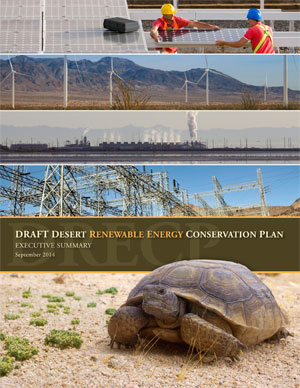Tom Hayden
The Peace and Justice Resource Center
What the television media noticed was Arnold Schwarzenegger and Jerry Brown shaking hands, but a significant story on how California is leading the world on climate change went unreported this week.
Schwarzenegger might be the blocking back to Brown’s broken-field runner in the race to protect the planet.
Sponsored by USC’s Schwarzenegger Institute and California’s Air Resources Board, the Sept. 8 symposium was packed with notable speakers and panels, and the packets included a letter from UN Secretary-General Ban Ki Moon, hoping that California would be the “vanguard” at September’s UN climate summit in New York City. Present was R.K. Pachauri, chair of the Intergovernmental Panel on Climate Change, who flew in from India for the occasion.
The leading global authority on climate science, Pachauri said “California is being watched by the rest of the world” as the UN prepares for climate treaty talks in the coming year. He appealed for California’s leadership to “give the world something to follow.” He applauded a contingent of student activists working on corporate divestment from fossil fuels, and who showed a documentary about their statewide work, including protests against fracking.
Expert speakers including Dan Kammen, Peter Gleick and Anthony Westerling summarized the state of climatescience and its economic cost. Ed Begley, who performed in a 1975 film withSchwarzenegger, gave a spirited defense of using the mass media for telling the climate story. Lisa Jackson, the former US EPA administrator now with Google, spoke of the mega-corporations four data centers run entirely on clean energy. Former Long Beach mayor and utility executive Bob Foster described his success in curbing eighty percent of criteria pollutants at the port, “a demonstration to the world.” UPS’ chief Michael Britt spoke of deploying thousands of clean-fuel trucks. CalPERS executive Ann Stausboll, head of Cal PERS, described her leadership of CERES, the national coalition of investors promoting sustainable corporate practices. It was a lineup of heavy hitters.
Without any fanfare, each of the two hundred seated participants received a pamphlet from the ARB suggestingthat the next climate focus of the Brown administration will be on confronting “short-lived climate pollutants” including methane, black carbon, fluorinated gases, and tropospheric ozone. The California focus for years has been on carbon dioxide emissions, but turning to SLCVs means the Brown administration will attack pollutants which are most potent in the shortterm, a key step in achieving 2030 and 2050 emission reduction goals.
Veteran clean energy advocate John White also applauded the new emphasis, noting that the emphasis on methane and black carbon “will be of great interest in China, India and Mexico, because they affect public health.”
Reducing these short-lived “super-pollutants” has an immediate payoff in cleaner air and health benefits for disadvantaged communities in California. Incoming Senate pro tem leader Kevin De Leon, a pivotal partner in passing climate legislation, noted that his Los Angeles Senate district is swamped with seven polluted freeways.
Vien Truong, an advocate with the Greenlining Institute, applauded the SLCV emphasis as an environmental justice priority. Last week the Legislature passed SB 605 by senators Ricardo Lara and Fran Pavley, giving the administration a mandate to go after the short-term pollutants.
Titled “Global Climate Negotiations, Lessons from California”, the Sacramento symposium showcased the rapidly-growing links between California and other regions forming a defacto green power bloc. On the eve of the event, Japan and California co-signed an agreement to follow a low-carbon energy pact. Agreements have been signed with Mexico, states in China and Germany, Quebec, British Columbia and a score of US states. Depicted on the conference logo was the California Bear striding over an image of the globe.
Schwarzenegger has genuine green credentials, having signed California’s historic AB 32 global warminglegislation [2006] over the opposition of his own Republican colleagues. Schwarzenegger’s consciousness, which may have been shaped by his former wife Maria Shriver and her brother-in-law, environmental lawyer Robert F. Kennedy, has persevered by leading the R20, a global coalition of “subnational” governments directed by Terry Tamminen, the former state EPA director and captain of the watchdog Santa Monica Baykeeper.
Schwarzenegger can do some heavy-lifting for Brown. Recalling that the auto companies originally “declared war on California”, Schwarzenegger noted that fourteen other states joined California in adopting fuel emission standards before the federal government followed, an example of California leadership that has been repeated.
“Californians don’t quit when they’re told something can’t be done”, the ex-governor continued. In 2012, he noted, the oil companies complained that the world would collapse unless the state’s global warming law was overturned by popular vote. “They raised $31 million against us, but then the people of California terminated them!”, he growled. “We told them, hasta la vista, baby!” The ex-governor also joked that he “likes sequels.”
The wrap up was left to Brown, who began by noting that “it was someone, I think Teilhard de Chardin, who once said ‘whatever rises, converges.'” Brown was alluding to the bipartisan diversity necessary to propel social change. The governor noted, as Schwarzenegger had, that “it started with Reagan”, referring to the conservative hero’s 1967 creation of the California Air Resources Board. Since that step preceded the federal Clean Air Act, California fought for and secured an exemption to map its own anti-pollution program.
The fossil fuel economy which made possible enormous growth also contained the “dark shadow” of climate change, Brown said, which led to “the promiscuous production of carbon” in the form of coal, oil and natural gas. Confident that the “dark shadow” will be pushed back, Brown described the decades-long menu of initiatives which have led to California’s foremost position in clean energy.
Brown explained his goal of advancing a green California model to the world by revising a Hollywood joke, that “what happens in California doesn’t stay in California.”#


